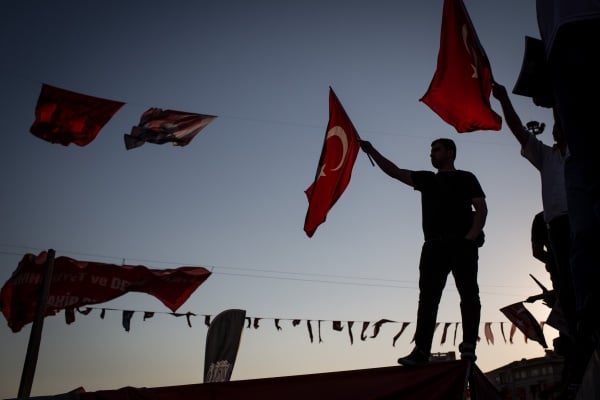
Turkey launched a joint military operation with the Syrian Kurdish paramilitary Protection Unit (YPG) to rescue the remains of Suleyman Shah, grandfather of Osman Gazi, the founder of the Ottoman Empire, from across the Syrian border Conflict Antiquities reports.
According to a treaty signed between Turkey and France in 1921, the colonial power at the time, Turkey, views the shrine of Suleyman Shah as a sovereign exclave within Syria, a view which is not shared by the current Syrian president Bashar al-Assad, who condemned the act of “flagrant aggression,” and insisted that “Turkey would be responsible for the results.”
The Guardian reported that in its first military operation in Syria, Turkey dispatched hundreds of troops, tanks, an aircraft, and drones to extract 38 soldiers guarding the historic tomb, and used the opportunity to remove the remains and the associated cultural artifacts to protect them from destruction.
According to the Turkish Prime Minister Ahmet Davutoğlu, Turkish military destroyed the site after the extraction “to prevent it from being used by ISIL Militiants.”
The Turkish Ministry of Foreign Affairs announced that the remains and cultural artifacts taken from the site have “temporarily moved to a new site within Syria, corresponding to the acreage of the previous one.” Turkey has already started the construction of a new tomb site close to Esme, a Kurdish town in the province of Kobani. Davutoğlu said the remains would be returned to their previous resting place when the time is appropriate.